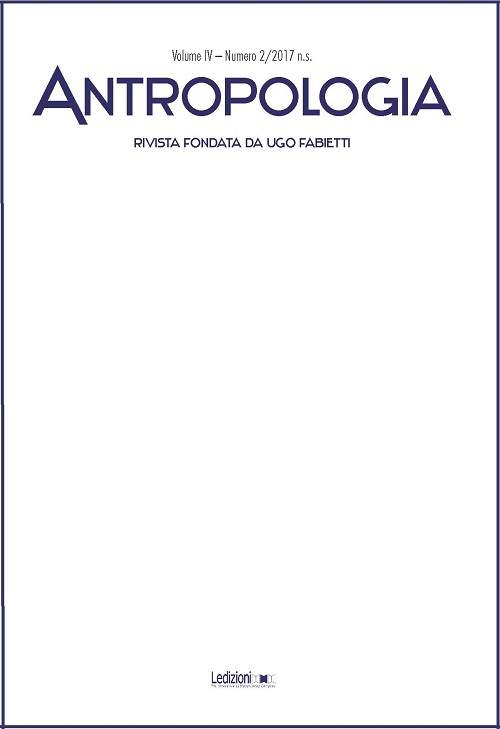Care Under Constraint: Street Children in a Rehabilitation Centre in Tijuana (Mexico)
DOI:
https://doi.org/10.14672/ada20171291%25pParole chiave:
Marginal Childhood, Drugs, Institutions, Identities, Tijuana, MexicoAbstract
Based on an ethnographic investigation carried out in 2010 in the city of Tijuana, this article questions the policies of institutional intervention targeting marginalised teenagers living in this city on the border with the US. Tijuana is characterised by the proximity to the United States and by the violence linked to drug trafficking. Such city traits are reflected in institutions, conceptualisations and actions concerning intervention towards street children. What is the specificity of the policies and institutions concerning those individuals? How can it be explained? How do teenagers deal with institutions and the subjectivity they propose?I will argue that the treatment of the addiction and non-voluntary reclusion in rehabilitation centres are the cornerstone of the treatment of street children on the border. The analysis of the speeches of those youngsters considered by institutions as “incorrigible” will show the ambiguity linked to the normativity of those kinds of institutions. On the one hand, the rehabilitation centres are rigid structures that compel and constrain individuals into a completely new subjectivity. On the other hand, those places represent a starting point from which the young people succeed in considering themselves as subjects, sometimes in contradiction with the normativity of the institution.
##submission.downloads##
Pubblicato
2017-10-31
Fascicolo
Sezione
Special Focus
Licenza
- Gli autori mantengono i diritti sulla loro opera e cedono alla rivista il diritto di prima pubblicazione dell'opera, licenziata sotto una Licenza Creative Commons - Attribuzione che permette ad altri di condividere l'opera indicando la paternità intellettuale e la prima pubblicazione su questa rivista.
- Gli autori possono aderire ad altri accordi di licenza non esclusiva per la distribuzione della versione dell'opera pubblicata (es. depositarla in un archivio istituzionale o pubblicarla in una monografia), a patto di indicare che la prima pubblicazione è avvenuta su questa rivista.




